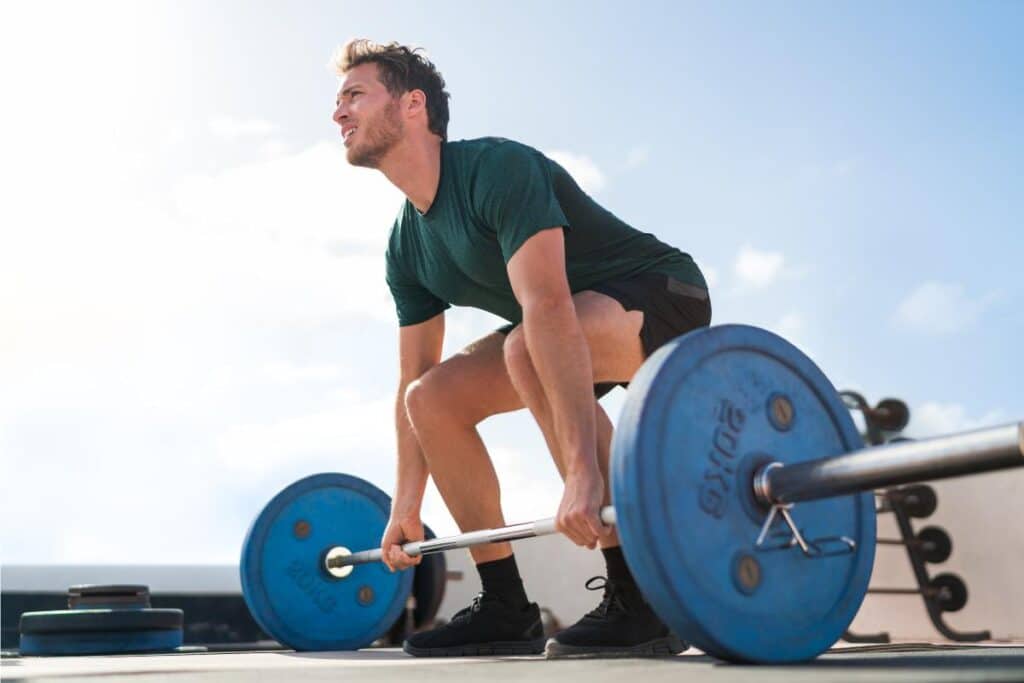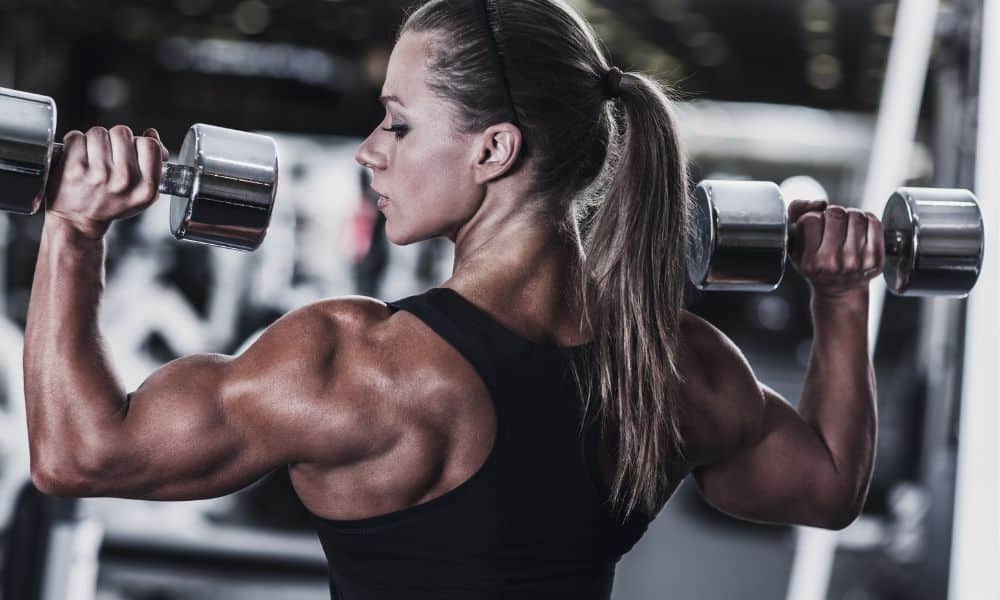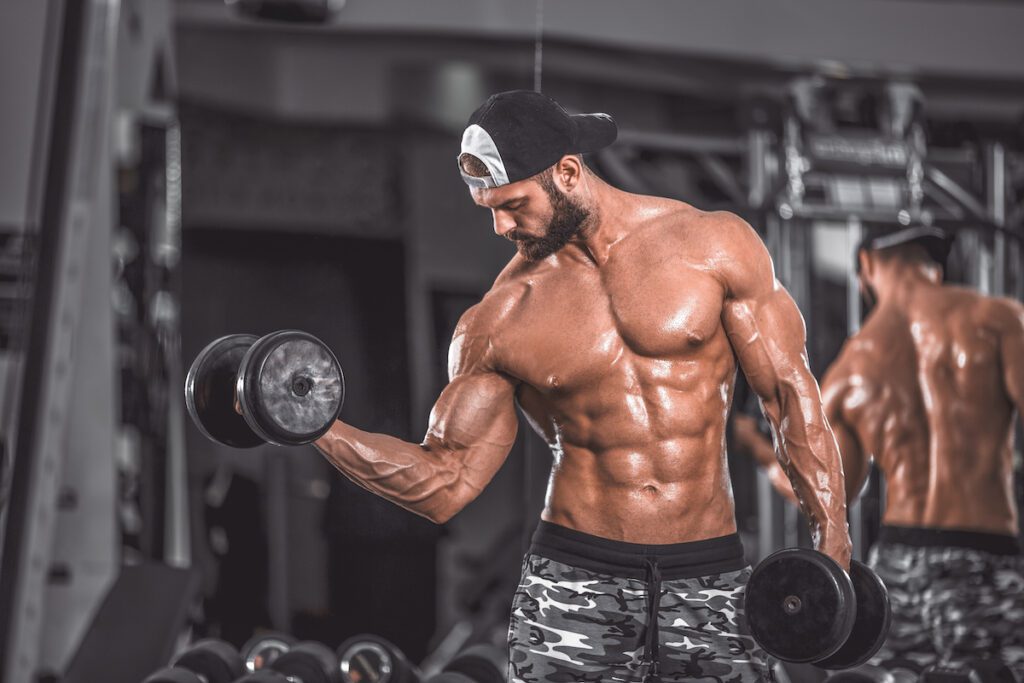Embarking on a bodybuilding program for beginners is a thrilling endeavor, where sculpting your physique and unlocking your full potential are the ultimate goals. However, with an abundance of information and approaches available, finding the best program to start your bodybuilding journey can be a daunting task. Whether you’re a novice or someone seeking to reinvigorate your fitness goals, the right program serves as your roadmap to success.
In this article, we’ll explore the ideal bodybuilding program for beginners, complete with guidance on training, nutrition, and everything in between. Therefore, get ready to transform your body and embrace the challenges and triumphs that lie ahead.
1. Define Your Goals:
Before you dive in, clarify your bodybuilding objectives. Whether it’s muscle gain, strength, or fat loss, setting clear goals will shape your program. Your goals will determine which diet and workout will work best for you. Programs are a blueprint to help you reach your bodybuilding goals.
2. Get the Basics:
Understand the fundamental principles of bodybuilding, such as progressive overload, nutrition, and proper form in weightlifting.
3. Consult a Professional:
Consider seeking guidance from a fitness trainer or coach who can design a tailored bodybuilding program for beginners.
4. Compound Exercises:
Begin your workouts with compound exercises like squats, deadlifts, and bench presses. They work multiple muscle groups efficiently.
5. Master Form:
Proper form is crucial to prevent injuries and maximize results. Learn and practice the right techniques for each exercise.
6. Gradual Progression:
Gradually increase the weight, repetitions, or intensity in your workouts, following the principle of progressive overload.
7. Nutrition Matters:
Focus on a balanced diet rich in lean proteins, complex carbohydrates, and healthy fats to fuel your workouts and support muscle growth.
8. Recovery and Rest:
Adequate sleep and rest are essential for muscle recovery. Aim for 7-9 hours of quality sleep each night.
9. Consistency and Compliance:
Stay consistent and compliant with your workouts and nutrition. Results come with time and dedication.
10. Monitor Your Progress:
Track your progress by keeping a workout and nutrition journal. Adjust your bodybuilding program as needed.
Workout Programs for Starting a Bodybuilding Journey
The best workout programs and diets for beginner bodybuilding programs are those that provide a balanced and sustainable approach to building lean muscle and improving overall fitness. For workouts, a well-structured program should focus on compound exercises like squats, deadlifts, and bench presses, which engage multiple muscle groups and support strength development. Also, a gradual increase in weight and intensity, adhering to the principle of progressive overload, is crucial.
Remember to start with a program that suits your fitness level and goals. Ensure proper form, gradually increase weights, and prioritize recovery. Consistency and patience are key to success with beginners bodybuilding, so choose a program that you enjoy and can maintain over the long term. It’s also advisable to consult a fitness professional or trainer to ensure you’re following a program that aligns with your individual needs and objectives.
Here’s a list of some of the best workout programs suitable for new bodybuilders:
- Starting Strength: A simple and effective program that focuses on fundamental compound lifts, such as squats, deadlifts, and bench presses, to build a strong foundation.
- StrongLifts 5×5: This program emphasizes five sets of five reps for the primary lifts, making it easy to follow and excellent for building strength and muscle.
- Push-Pull-Legs (PPL): PPL splits the workouts into pushing (chest, shoulders, triceps), pulling (back, biceps), and legs (quads, hamstrings, calves), providing balance and flexibility.
- 5/3/1 for Beginners: A beginner-friendly version of the popular 5/3/1 program that gradually increases weights, focusing on the key lifts.
- Full-Body Workouts: Targeting all major muscle groups in a single workout, full-body routines are great for beginners looking to develop a balanced physique.
- Upper/Lower Split: This program divides workouts into upper body and lower body, allowing for increased volume and specialization on muscle groups.
- Bodyweight Training: If you prefer minimal equipment, bodyweight workouts can be highly effective for building muscle and improving strength.
- Dumbbell-Only Program: Ideal for home workouts or limited gym access, these programs utilize dumbbells to provide a comprehensive bodybuilding routine.
- 3-Day Split: A three-day split program typically includes workouts for the upper body, lower body, and a rest day, allowing you to target muscle groups with more intensity.
- Hypertrophy-Specific Training (HST): Designed for muscle growth, HST alternates high-repetition, low-weight workouts with low-repetition, high-weight workouts.
- GVT (German Volume Training): This program involves ten sets of ten reps for a single exercise, offering a high-volume approach to building muscle.
- PHAT (Power Hypertrophy Adaptive Training): PHAT combines powerlifting and bodybuilding exercises in a hybrid program that promotes strength and muscle development.
Diet Programs for Starting a Bodybuilding Journey
As for diet, a balanced and nutrient-dense approach is key. Prioritize lean proteins for muscle growth, complex carbohydrates for energy, and healthy fats for overall health. Consistency in both training and nutrition, paired with proper rest and recovery, are the cornerstones of success in a beginner bodybuilding program. Tailoring these elements to individual goals and preferences is essential for a program that yields lasting results.
While there are various diet approaches, the best diet program for beginners bodybuilding should prioritize balanced nutrition to support muscle growth and overall health. When choosing a diet program, consider your personal preferences, dietary restrictions, and bodybuilding goals. What’s most important is that your diet aligns with your fitness objectives and is sustainable over the long term. Also, it’s often helpful to consult with a registered dietitian or nutritionist who can provide personalized guidance based on your individual needs and preferences.
Here’s a list of some effective diet programs and approaches to consider:
- Balanced Diet: Focus on consuming a balanced mix of lean proteins, complex carbohydrates, healthy fats, and a variety of fruits and vegetables. This approach offers flexibility and is suitable for most beginners.
- High Protein Diet: Emphasize lean protein sources like chicken, turkey, fish, lean beef, tofu, and legumes to support muscle recovery and growth.
- Bulking Diet: Ideal for those looking to gain mass, this diet focuses on a calorie surplus and increased carbohydrate intake while maintaining a protein-rich diet.
- Cutting Diet: Suitable for those seeking to reduce body fat, a cutting diet involves a calorie deficit, with an emphasis on lean proteins and high-fiber foods.
- Keto Diet: A low-carb, high-fat diet that can help with fat loss. It may require careful monitoring of macronutrient ratios.
- Flexible Dieting (IIFYM – If It Fits Your Macros): This approach allows you to enjoy a variety of foods as long as they fit within your daily macronutrient targets.
- Intermittent Fasting: Incorporating specific eating windows and fasting periods can help control calorie intake and promote fat loss.
- Vegan or Vegetarian Diet: For those who prefer plant-based eating, vegan or vegetarian diets can provide a variety of options for protein and nutrient intake.
- Paleo Diet: Focuses on whole, unprocessed foods and avoids grains, dairy, and processed items. It can be adapted to suit bodybuilding goals.
- Carb Cycling: Involves alternating between high and low-carb days to optimize energy for workouts and promote fat loss.
- Zone Diet: A diet program that balances macronutrients into precise portions to support overall health and body composition goals.
- Low-FODMAP Diet: Suitable for individuals with digestive sensitivities, this diet helps manage gastrointestinal issues by avoiding specific types of fermentable carbohydrates.
Conclusion
In conclusion, embarking on a bodybuilding program for beginners is a rewarding journey. By defining your goals, seeking guidance, mastering form, and maintaining consistency, you can make steady progress. Remember, success in bodybuilding is a marathon, not a sprint. Commit to the process, and your physique will reflect your dedication and effort. If you love bodybuilding, share this article on Facebook or Twitter so that others can learn more about building muscle.




